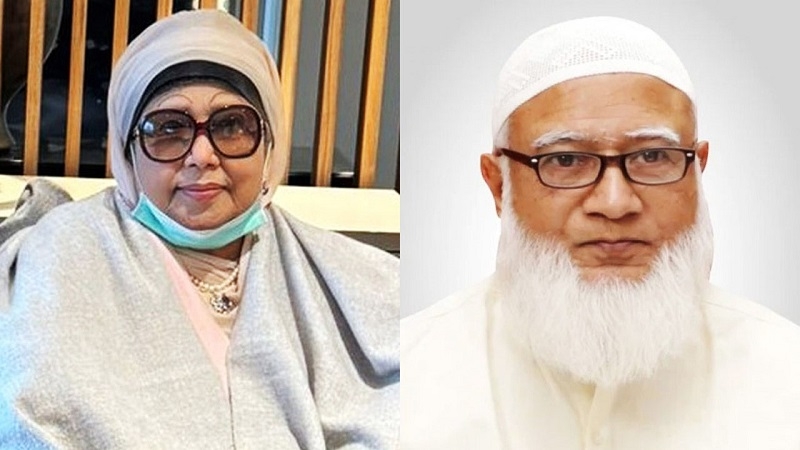- Depositors stranded as Sammilito Islami Bank is in liquidity crisis |
- BNP faces uphill task to reach seat-sharing deal with allies |
- Bangladesh rejects India’s advice; vows free, fair polls |
- Hadi’s condition very critical: Singapore Foreign Minister |
- Asia-Pacific hunger eases, Gaza pipeline fixed, Europe hit by flu |
Jamaat Ameer Meets Khaleda Zia in London

Bangladesh Jamaat-e-Islami’s Ameer, Shafiqur Rahman, and Nayeb-e-Ameer, Syed Abdullah Mohammad Taher, met with BNP Chairperson Khaleda Zia in London on Sunday, 13 April, in a significant diplomatic gesture. The meeting took place at the residence of Tarique Rahman, the BNP's acting chairman and Khaleda Zia’s eldest son. Tarique Rahman was also present during the discussion, marking a rare gathering of senior political figures from opposing camps.
The meeting comes on the heels of a recent European tour by Shafiqur Rahman and Syed Abdullah Mohammad Taher, during which they engaged in various diplomatic discussions. According to Maruf Kamal Khan, a former press secretary to the BNP Chairperson, the visit to Khaleda Zia was arranged just before their return to Bangladesh. Khan shared the details of the meeting in a Facebook post on Tuesday night, where he confirmed the presence of Tarique Rahman and his participation in the conversation.
Although the contents of the discussion remain undisclosed, the meeting is seen as a significant development in the political landscape of Bangladesh, as both Jamaat-e-Islami and the BNP are key players in the country’s opposition politics. Sources close to the meeting hinted at discussions regarding the ongoing political situation in Bangladesh, with particular focus on potential collaboration and future strategies for both parties.
This encounter also holds symbolic weight, as it highlights the continued political relevance of Khaleda Zia, despite her ongoing health issues and legal battles. The meeting with Jamaat-e-Islami’s leadership underscores the alliance-building efforts among Bangladesh’s opposition factions, which have been seeking to present a unified front in the face of the current government.
Shafiqur Rahman and Syed Abdullah Mohammad Taher’s visit to London and their meeting with Khaleda Zia further reflects the widening scope of political diplomacy, not just within Bangladesh but also across international borders, as the country’s political future remains uncertain.
Following the meeting, it is expected that more information will be shared in the coming weeks regarding any formal agreements or declarations arising from this dialogue. The political landscape in Bangladesh continues to evolve rapidly, with opposition parties looking for new avenues to challenge the ruling government.
The meeting marks a notable moment in the ongoing dynamics of Bangladeshi politics, especially considering the history of tensions between Jamaat-e-Islami and BNP, both of which have at times found themselves at odds over strategic political decisions. The current engagement signals a potential shift in how these parties may choose to cooperate in the future.

